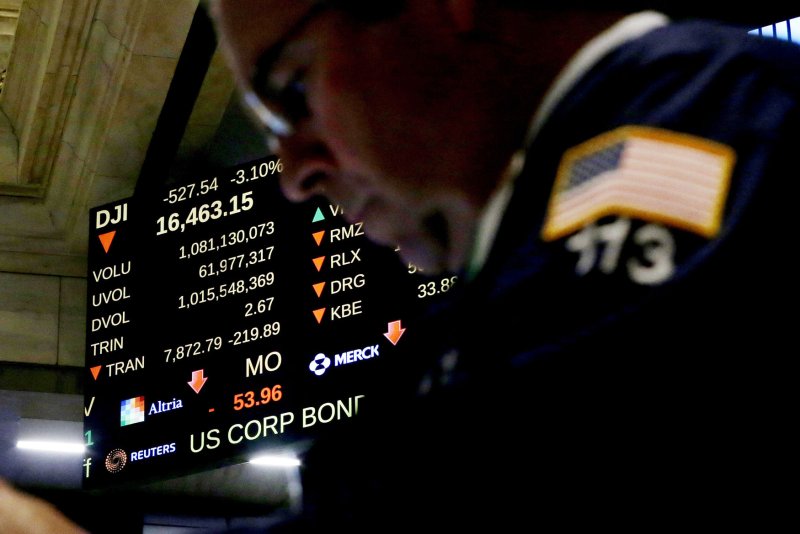Crude oil prices drifted lower in early trading on Thursday as trade concerns offset geopolitical risk. File Photo by John Angelillo/UPI |
License Photo
Aug. 2 (UPI) -- Crude oil prices continued their drift modestly lower ahead of the start of U.S. trading on Thursday amid trade issues, while geopolitical tensions simmered.
Iran on Wednesday said a new naval destroyer was in the testing phase ahead of a deployment to the Strait of Hormuz. A rear-admiral said that, if Iran's oil exports are threatened, there would be definite impacts on the waterway separating Iran and Oman.
The Strait of Hormuz hosts about 20 percent of the global trade in oil and choking it off would add to supply-side strains that would come in November if U.S. sanctions manage to isolate Iranian oil from the market.
Meanwhile, trade tensions have muted the impact of geopolitical tensions. U.S. Trade Representative Robert Lighthizer said President Trump has called for an increase in tariffs on $200 billion in Chinese goods from 10 percent to 25 percent.
A report from the Russian Energy Ministry said trade disputes were inhibiting factors for the global economy.
The price for Brent crude oil was down 0.23 percent as of 9:21 a.m. EDT to $72.22 per barrel. The price for West Texas Intermediate, the U.S. benchmark for the price of oil, was down 0.4 percent to $67.39 per barrel.
In the economy, the Organization for Economic Cooperation and Development reported energy prices for its member states increased by 10.4 percent in June, compared with a 9.1 percent increase in the year to May. Food prices, meanwhile, increased 1.8 percent.
Both factors contributed to a rise in inflation in member states from 2.6 percent in May to 2.8 percent in June. Not counting food and energy, OECD inflation was flat at 2 percent, in line with a target outlined by the U.S. Federal Reserve.
Inflation, as well as global tariffs, could make consumer goods more expensive and inhibit future demand.















